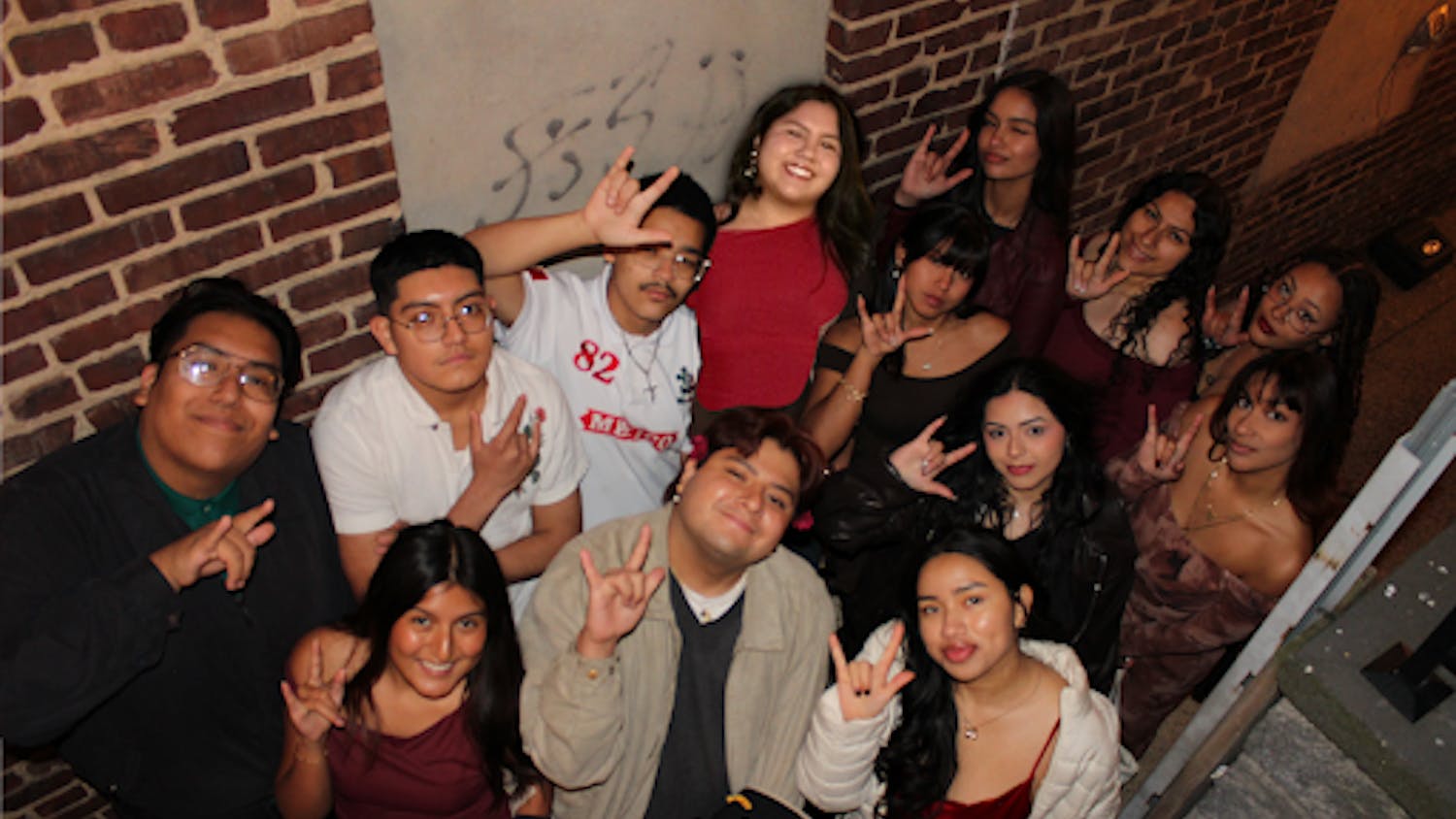As the night chill set in last Wednesday, students sat on the cool brick ground in front of Green Hall, their eyes fixed on the emptiness behind the podium on the top step.
There was an eerie silence, as attendees mustered the courage to voluntarily go up and talk into the microphone about sexual violence - to break the silence and stigma placed on victims.
But then, a soft round of applause broke out as one young woman or man stood up and ascended the steps, whether to tell the story of her own rape less than a year ago, the abuse his mother suffered or her own mission to "take back the night."
The open mic was part of the 12th annual Take Back the Night, which is an international rally against sexual violence. At the College, the Women's Center co-sponsors it with several other campus organizations.
"I think it's really good to bring something that people don't know is all around them to the forefront," Blakeley Decktor, sophomore women's and gender studies and international studies major, said. "When you know the speakers it becomes personal."
The need for Take Back the Night is rooted in the fact that every two-and-a-half minutes, someone in America is sexually assaulted, the majority by someone he or she knows, according to statistics from a 2003 survey by the U.S. Department of Justice.
Members from various organizations, including sororities, Bod Squad, VOX and White Ribbon Campaign, opened the rally by reading statistics such as these to expose a harrowing reality.
Approximately 125 students attended the event. Susan Switlik, director of the crisis center Womanspace, said she attended the first Take Back the Night at the College 12 years ago. Back then, she said only about 15 women came.
Looking out upon the flickering flames from the candles held by women and men of various ethnicities, she said, "I'm just astonished at the change I've seen in the last 12 years. You're making the face of Take Back the Night a united face."
Participants demonstrated their unity when walking past the residence halls on campus, after the opening speeches and before the open mic part of the program, as they chanted: "Women unite, take back the night; men unite, join the fight."
The cheers of women reclaiming the night turned heads - from those sitting outside Travers and Wolfe Halls to those peeking out their dormitory windows, raising their blinds to get a better view.
If participants did not suffer from sexual violence themselves or know someone who did, they could have found motivation to march in listening to Alice Kupetz, a middle-aged woman who had been domestically abused.
Before the walk, Kupetz openly talked about her two abusive relationships, one of which was her 15-year marriage to her high school sweetheart. She said that no matter how hard she tried, she could never please him, and when she started to stand up for herself, his emotional abuse turned physical.
"I lost myself," she said about the relationship. "I lost who I was."
Kupetz turned to drinking at the age of 31 to deal with her misery, not having the strength to leave her husband until he bruised their son's arm. That day, she said, "I left with nothing," having escaped the house with her son under the pretenses of bringing him to a birthday party.
However, she later found herself in another abusive relationship, dating a man whom she first thought was her "dream come true."
In reality, "he was my biggest nightmare," she said. "He was 10 times more abusive." She said he would hit her to the point that her face blackened and her eyes swelled.
When she left the second man and had no one to support her, Kupetz ended up living in the inner city.
The experience turned her life around. She said all the injustice
and poverty inspired her to pursue social work.
She earned her bachelor's at Kean University and a master's at Fordham University, degrees which now enable her to help those with psychiatric problems.
"I wanted to share my story so you know when you're going through situations, go with your gut," she said. "I always went against mine."
Kupetz urged victims to take advantage of anti-violence agencies like Womanspace. She advised abused women to use its hotline and counseling services.
"You are not alone in this," Switlik said, stressing the need for women to report rapes and not feel ashamed, since they are not at fault.
Though most victims of rape and sexual assault are female, Take Back the Night at the College challenged the notion that fighting violence is a "women's issue," stressing the need for the entire community's collaboration.
Tom Sales, sophomore political science major and incoming president of Catholic Campus Ministries, explained why he feels it is important for men to participate in this event.
"I don't want to be associated with rapists because I'm a guy," he said. "I never have been (one) and never will be (one), no matter how much I drink or who I'm with. It's a shame every guy in this country can't say the same. Why in the name of God don't they say the same? I can think of anything and I'm a pretty smart guy."






